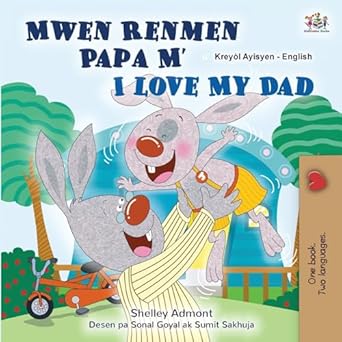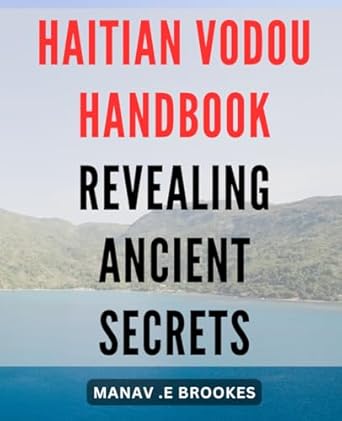Haitian Vodou is a rich and complex spiritual tradition that transcends mere religious practice; it is deeply interwoven with the cultural, social, and familial fabric of Haitian society. One of the most significant aspects of Vodou is its veneration of ancestors, which reflects a profound respect for family and heritage. This article explores how Vodou honors ancestors and the implications this has for identity, community, and cultural continuity in Haiti.
Understanding Vodou: An Overview

Vodou, often misunderstood and misrepresented in popular culture, is a syncretic religion that combines elements of West African spirituality with influences from Catholicism and indigenous Taíno beliefs. It is practiced primarily in Haiti but has a presence in various forms throughout the Caribbean and the diaspora.
The religion is characterized by a pantheon of spirits known as “Loa” or “Lwa,” who serve as intermediaries between the divine and the human. Among these spirits, the ancestors play a crucial role, providing guidance, protection, and a sense of belonging to the living.
The Importance of Ancestors in Vodou

In Vodou, ancestors are revered as powerful entities that maintain a vital connection between the past and the present. This connection is not merely symbolic; it has practical implications for everyday life, shaping personal identities and community relations.
Preserving Family Heritage

The act of honoring ancestors serves to preserve family heritage and history. Families often maintain altars adorned with photographs, personal belongings, and symbols representing their deceased relatives. This practice encourages storytelling and the passing down of traditions from one generation to the next.
- Storytelling: Elders share stories about ancestors, their lives, struggles, and achievements, creating a narrative that binds the family together.
- Rituals: Annual rituals, such as the “Fête Gede,” celebrate the spirits of the dead, inviting them to partake in the festivities and reinforcing familial bonds.
- Memory and Legacy: The way ancestors are remembered influences how future generations perceive their identity and cultural heritage.
Spiritual Guidance and Protection

Vodou practitioners believe that ancestors provide spiritual guidance and protection. When making important life decisions—such as marriage, career changes, or even health issues—individuals often seek the advice of their ancestors through rituals and prayers. This practice fosters a sense of security and continuity, as practitioners feel supported by those who came before them.
Case Studies: Ancestors in Action
To illustrate the role of ancestors in Vodou, we can look at specific case studies that exemplify these practices and their significance in contemporary Haitian society.
The Fête Gede: A Celebration of the Dead
The Fête Gede, celebrated annually on November 1st and 2nd, is one of the most important Vodou festivals. It honors the ancestors and the spirits of the dead, particularly the Gede spirits, who are known for their connection to death and fertility. During this festival, families come together to create altars, offer food, and engage in lively celebrations.
- Community Gathering: The festival serves as a communal event where families reunite, share stories, and strengthen their ties.
- Ritual Offerings: Participants prepare traditional foods and drinks for the ancestors, inviting them to join in the festivities.
- Ritual Dance and Music: The use of rhythm and dance is integral to the celebrations, allowing participants to express their connection to both the living and the dead.
Individual Practices: Personal Altars and Offerings
Many Vodou practitioners maintain personal altars in their homes dedicated to their ancestors. These altars are adorned with items that belonged to the deceased, along with candles, flowers, and offerings of food and drink. This practice serves several purposes:
- Daily Remembrance: The altar acts as a constant reminder of the influence and presence of the ancestors in everyday life.
- Personal Connection: Practitioners can communicate with their ancestors through prayer and meditation, seeking guidance in personal matters.
- Cultural Identity: Maintaining an altar reinforces one’s cultural identity and connection to the broader Vodou community.
The Impact of Colonial History on Ancestor Veneration
The historical context of Haiti’s colonial past significantly shapes the contemporary practice of Vodou and the veneration of ancestors. The brutal legacy of slavery and colonialism has ingrained a deep awareness of heritage and identity among Haitians.
Resistance and Resilience

Vodou emerged as a form of resistance against colonial oppression. During the Haitian Revolution, enslaved people invoked the spirits of their ancestors to gain strength and courage in their fight for freedom. This historical backdrop gives ancestor veneration a dual significance:
- Symbol of Resistance: Ancestors are viewed as warriors who fought for freedom, inspiring contemporary practitioners to continue the struggle for dignity and social justice.
- Resilience: The act of remembering and honoring ancestors fosters resilience in the face of ongoing social and economic challenges.
The Role of Ancestors in Contemporary Haitian Society
Today, the role of ancestors in Vodou remains vital, influencing social norms, family structures, and cultural practices. In a rapidly changing world, the veneration of ancestors helps to ground individuals in their identity and heritage.
Building Community Through Ancestral Connections
Communities that practice Vodou often find strength in their shared heritage, with ancestor veneration serving as a focal point for communal bonds. This interconnectedness fosters a sense of belonging, essential for coping with the challenges faced by many Haitians today.
- Support Networks: Families and communities provide emotional and financial support to one another, rooted in shared ancestral ties.
- Cultural Preservation: Community events centered around ancestor veneration help preserve cultural traditions and educate younger generations.
- Social Responsibility: The teachings of ancestors often emphasize the importance of helping others in the community, creating a culture of mutual aid.
Conclusion: The Enduring Legacy of Ancestors in Vodou

In summary, the role of ancestors in Haitian Vodou is a fundamental aspect of the tradition that honors family and heritage. Through rituals, storytelling, and personal practices, Vodou practitioners maintain a deep connection to their ancestors, drawing strength and guidance from their legacy. This veneration serves not only to preserve individual and family histories but also to foster community resilience and cultural continuity in the face of modern challenges.
As we reflect on the importance of ancestors in Vodou, it becomes clear that their influence extends far beyond the spiritual realm, permeating every aspect of life in Haiti. In honoring their ancestors, practitioners affirm their identity, reinforce familial bonds, and cultivate a sense of belonging that is essential for navigating the complexities of contemporary life.




